Creating the Perfect Soil for Your Succulents
Succulents are really in demand now, whether you keep them inside or outside. But if you want your succulent to thrive, you have to pay attention to the soil it’s planted in. That’s why we made this guide to help you make your own succulent soil at home. It’s easy and straightforward, so anyone can do it!
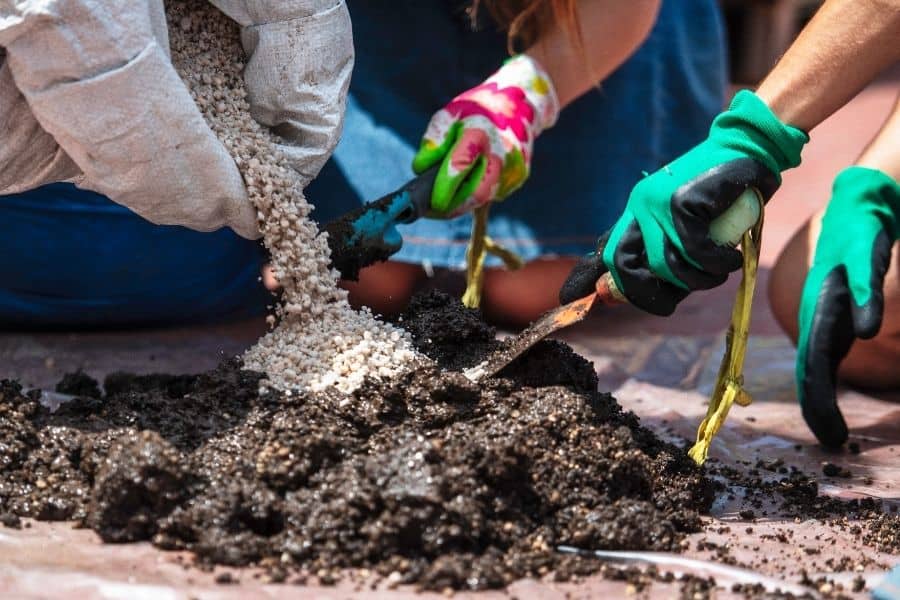
This page contains affiliate links, and as an Amazon Associate we earn from qualifying purchases which means we receive a small commission when you make a purchase, at zero cost to you.
How to Make Succulent Soil
Succulents come in all shapes, sizes, and colors. They’re known for being pretty easy to care for, but you still need to make sure they have the right soil. Making your own succulent soil is simple, and we’ll show you how!
Ingredient 1: Nutritional Base
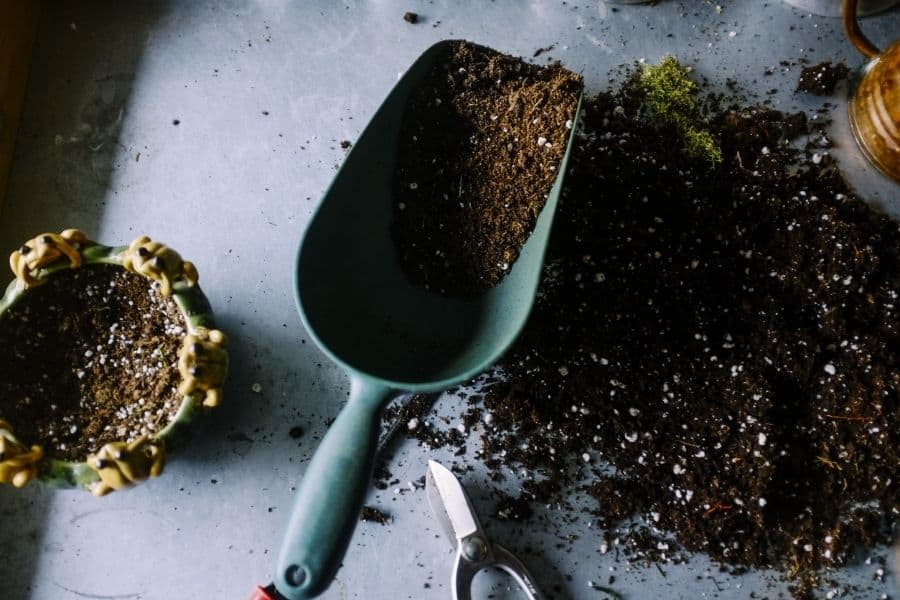
The main part of succulent soil is something that gives the plant important nutrients. Most people use regular potting soil found at nurseries. Just make sure to choose one that isn’t too dense or packed with too many nutrients. You want soil that has large particles and good drainage. Some people like to add materials like pine bark or coconut coir to improve the soil’s nutrition and drainage.
Ingredient 2: Drainage
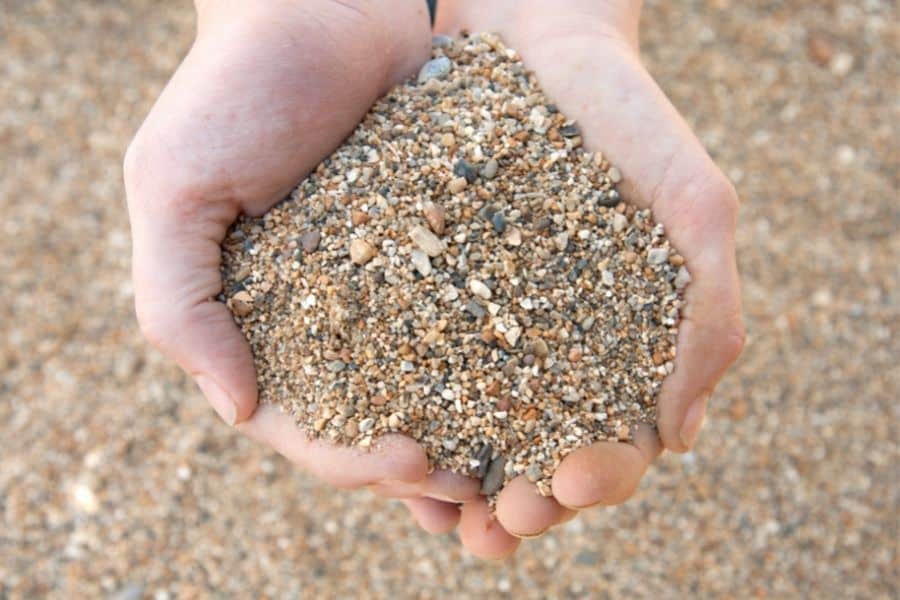
Succulents come from dry areas, so they need soil that drains well. That’s why adding drainage materials is important. One common option is sand, but it should be coarse and not hold too much water. Construction sand might have chemicals, so it’s better to buy coarse sand from a store or use turface, which is like broken-up rocks and improves soil drainage.
Ingredient 3: Water Retention
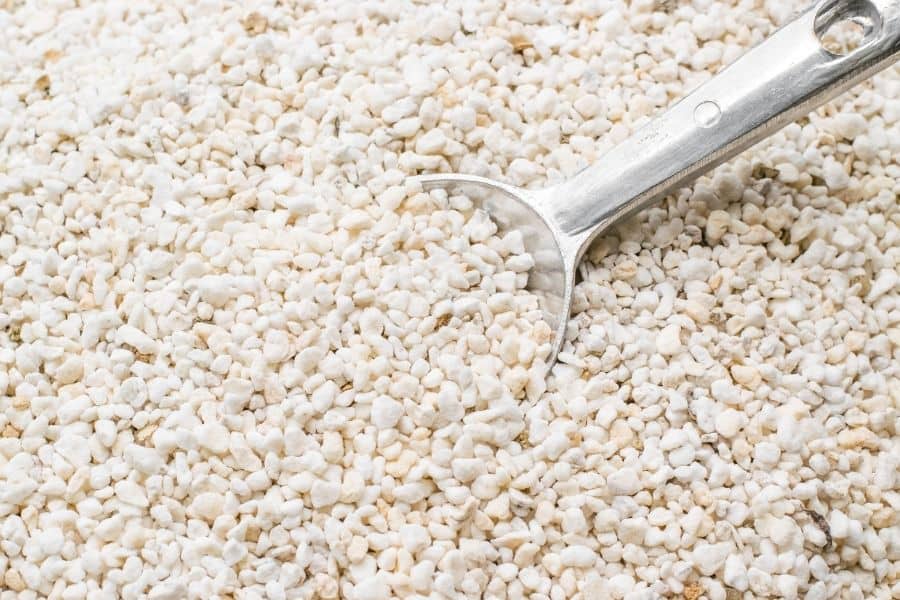
Succulents don’t like too much water, so it’s crucial to add something to retain just enough moisture. Perlite or pumice are great choices. They’re made from volcanic glass and absorb water, preventing excess moisture in the soil. Plus, their large particles also help improve air circulation around the roots.
Combining the Ingredients
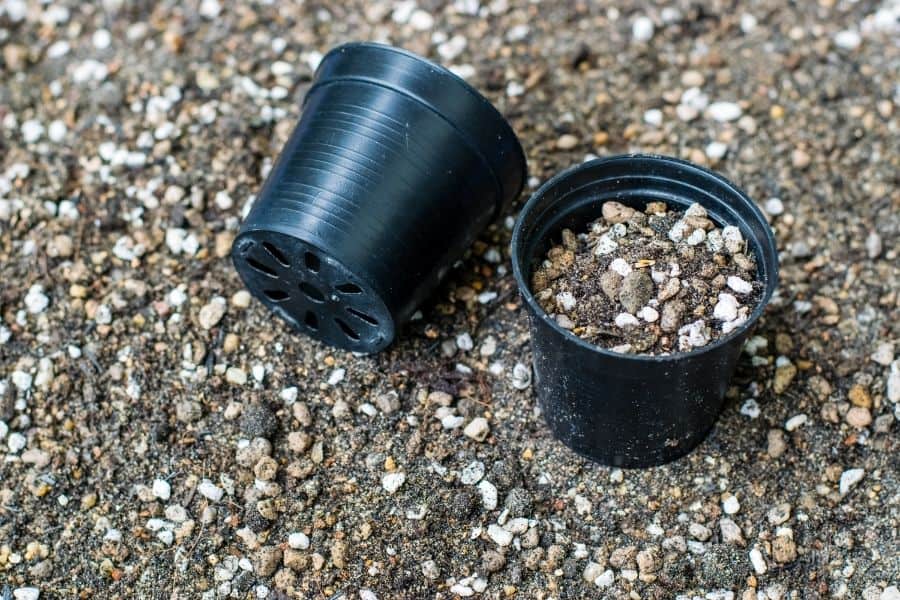
Now that you know the ingredients needed for succulent soil, it’s time to explore some common recipes. You can mix and match these components and adjust the ratios according to your plants’ needs.
Recipe 1: Balanced Blend
- 1 part black peat* or regular potting soil
- 1 part perlite* or coarse sand*
(or) - 1 part all-purpose soil* or garden soil
- 1 part gravel* or coarse sand*
*affiliate links
This recipe combines equal parts of a nutritional medium like black peat or potting soil with a drainage material like perlite or coarse sand. You can use different combinations to find the right balance.
Recipe 2: Sturdy Mix
- 3 parts all-purpose soil* or potting soil
- 2 parts coarse sand* or gravel*
- 1 part perlite* or pumice stone*
*affiliate links
This recipe uses three parts of organic nutritional medium like potting soil with two parts of a drainage material like coarse sand. Finally, add one part of an absorbent such as pumice or perlite stone. This mix is suitable for outdoor plants as it provides stability.
Recipe 3: Nutrient-Friendly
- 1 part pine bark*
- 1 part coarse sand*
- 1 part perlite* or pumice stone*
*affiliate links
This recipe is ideal if your succulent is sensitive to high levels of nutrients. Instead of potting soil, you can use pine bark as the nutritional medium. Pine bark decomposes slowly, maintaining a steady supply of nutrients. Mix it with equal parts of coarse sand for drainage and perlite or pumice stone for absorption.
With these recipes, your succulents will have the perfect soil to thrive for a long time. Happy planting!
FAQ’s
Can I Use Regular Potting Soil for Succulents?
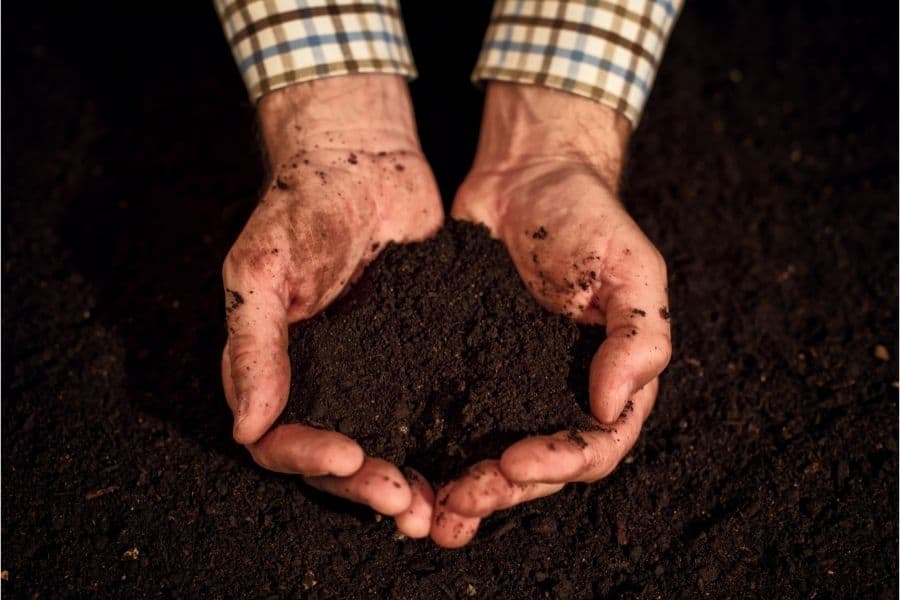
Regular potting soil is not suitable for succulents because it holds too much moisture that these plants can’t handle. Succulents prefer well-draining soil, and the compact, moist nature of regular potting soil can cause root rot and harm the plant. To create the right soil mix, add sand, perlite, or pumice to the potting soil for improved drainage and aeration.
How Do You Change Potting Soil for Succulents?
To make potting soil suitable for succulents, mix one part coarse sand and one part perlite or pumice with two parts potting soil. This combination helps enhance soil drainage and aeration, preventing excess moisture that could lead to root rot.
Read more about changing soil and repotting succulents here:
How to Repot Succulents
Do I Need Special Compost for Succulents?
Succulents actually thrive in nutrient-poor soils, so special compost isn’t necessary. However, you can use general soil-based compost for succulents and improve its drainage by incorporating materials like sand, grit, pumice, or perlite.
Do Succulents like Wet or Dry Soil?
Succulents are accustomed to dry and arid regions where the soil is typically dry. They thrive in soil that doesn’t retain much water, as sudden heavy downpours are uncommon in their natural habitats. Therefore, succulents prefer dry soil. Excess moisture from wet soil can lead to root rot and ultimately harm or kill the plant.
Bottom Line
To ensure your succulents thrive, it’s essential to have well-drained, coarse soil with ample air pockets and low nutrient content. While succulents can store water, excess moisture can lead to root rot and plant death.
Making your own succulent soil allows for customization based on individual plant needs and varying climates. Simply modify regular potting soil with ingredients like coarse sand, perlite, and pumice to improve drainage and aeration.
With the right soil, your succulents will flourish and enjoy a long, healthy life.
